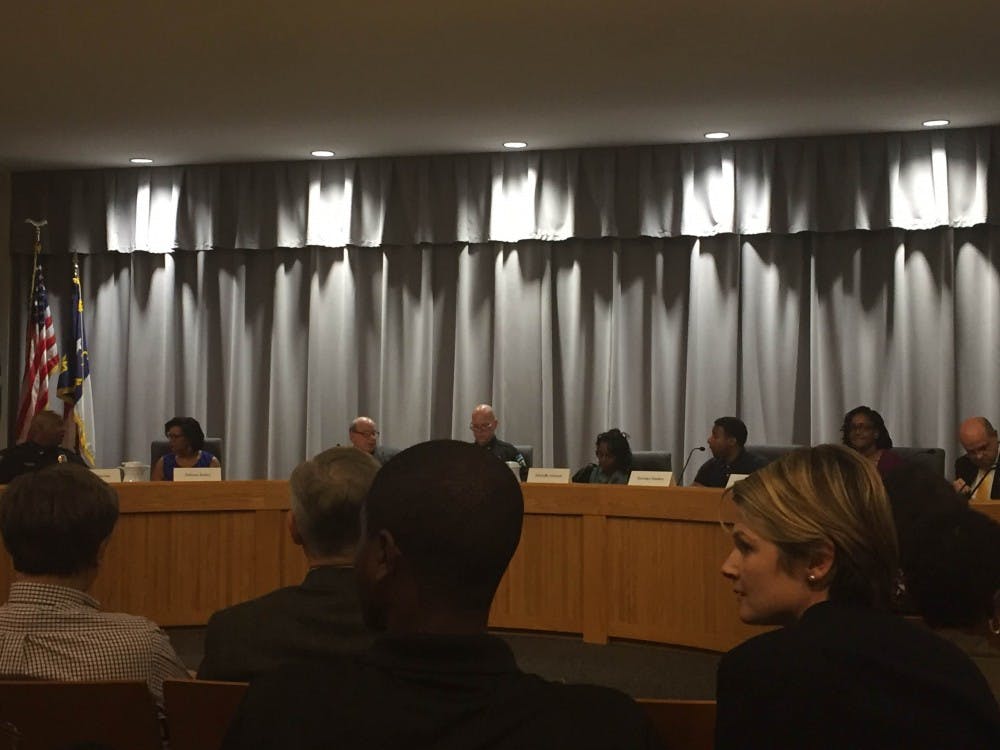Early in a public forum Monday night sponsored by the District 15B Racial Justice Task Force and the Justice in Action Committee of the Town of Chapel Hill, panelist and English teacher Terrence Foushee talked about interacting with police while growing up African-American.
"I've literally broken into deep sweats over being pulled over, especially as a high school student," Foushee said. "It seems as if every kid has been treated as if they were criminals. For me, working with kids, it's stunning to me how young kids develop how they feel about police."
The panelists discussed how to build relationships between police and minority community members. Chapel Hill attorney Tye Hunter, who was on the panel alongside law enforcement officials and community members, spoke about the importance of interacting in non-police contexts.
"We have very few Chapel Hill police officers that live in Chapel Hill," he said. "I think that if we're going to have community policing, we're going to want the police to be a part of the community when they're not working."
Carrboro Police Chief Walter Horton said programs have been implemented to integrate the police more into the community, like "Coffee with a Cop" programs and events in Chapel Hill and Carrboro high schools where students can eat pizza with police officers. These programs aim to create a relationship of trust between law enforcement officials and young people.
Carrboro Board of Aldermen Member Michelle Johnson said a history of distrust between police and minority persons will make this process difficult.
"I'm not sure black people ever trusted the police," she said. "I mean, think about our history. If we think about being enslaved, if we think about black bodies not being valued, why would we have trust?"
The discussion ended on the disproportionate statistics of police pulling over minority groups more than whites, especially for marijuana use. Hunter spoke about the discrepancy between committing a crime as a white person or a minority person.
"Speaking about my group, white liberals, we have a lot more confidence in our good intentions than we should," he said.



